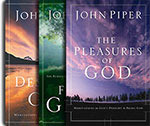Last fall I went through a course in which I was taught “textual criticism.” I was excited to finally have a chance to use the apparatuses and walk my way through the varying manuscripts and papyri with some degree of competence. Much to my surprise I was very concerned as we began the lectures and work on various manuscripts. What was hardest for me was analyzing texts, I quickly realized that this was not something I thought it was. I will begin a discussion in the next couple of posts to reason both logically and with some rhetoric for the position I finally became convinced of. As a result, I have began using the King James Version. Not because I am an adherent to what is known as “KJV Only-ism,” but because I am reacting against the philosophy behind modern textual criticism. ( consult “The King James Only Controversy” by James White for a good examination of the flawed tendencies of certain people who hold to KJV only-ism).
A qualifier must be made at the outset: I am not against all textual criticism, in fact, that would be an erroneous position because I believe in using the original languages of Scripture. So- what type of criticism am I opposed to? Two answers: (1) Higher Criticism, which is nothing more than unbelief and hostility toward the Lord. (2) The second type I am opposed to is a “pastoral” concern. I am opposed to the type of criticism that leaves doubt in its wake, many people in the pews would really struggle with their confidence in the Bible if they came to find out the issues behind texts like John 8, or Mark 16.
Moving toward the philosophy of textual criticism, one must understand the aim of TC. Certain questions will be posed to help with this: is modern textual criticism helpful? Do we have more certainty about our New Testament now than we did before 200 years ago? What is the church to do with all the evidence she possesses? What is the ultimate goal of textual criticism? Why do we need to have reliable, tangible evidence? Is it right to suggest only the original manuscripts were inspired? What does inspired mean? These questions bring one to the crux of the philosophy. I will try to offer my answers in the following weeks. From these answers, I think it will be possible to get at the philosophy behind TC.
My decision to use the King James Version was not made in the dark. I read various scholars (the best introduction to Textual Criticism I found is “The Text of the New Testament” by Metzger and Ehrman) and learned to “do” textual criticism. My own convictions have fallen on the road less traveled, to say the least. The one question that comes back is why would you go against the grain? My answer lies in the simplicity of God’s word and the answers to the problems stated above in the second paragraph.
For now, let me state again that my choice of the King James is not because I think it is the only “inspired” text, but because of my reaction against the mainline TC and the philosophy behind it.




No comments:
Post a Comment